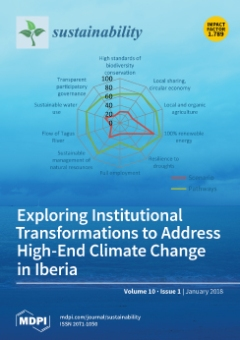Open AccessArticle
A Critical Examination of Geoengineering: Economic and Technological Rationality in Social Context
by
Ryan Gunderson 1,*, Brian Petersen 2 and Diana Stuart 3
1
Department of Sociology and Gerontology, Miami University, Oxford, OH 45056, USA
2
Department of Geography, Planning and Recreation, Program in Sustainable Communities, Northern Arizona University, Flagstaff, AZ 86011, USA
3
School of Earth Sciences and Sustainability, Program in Sustainable Communities, Northern Arizona University, Flagstaff, AZ 86011, USA
Cited by 19 | Viewed by 12293
Abstract
Geoengineering—specifically stratospheric aerosol injection—is not only risky, but supports powerful economic interests, protects an inherently ecologically harmful social formation, relegates the fundamental social-structural changes needed to address climate change, and is rooted in a vision of a nature as a set of passive
[...] Read more.
Geoengineering—specifically stratospheric aerosol injection—is not only risky, but supports powerful economic interests, protects an inherently ecologically harmful social formation, relegates the fundamental social-structural changes needed to address climate change, and is rooted in a vision of a nature as a set of passive resources that can be fully controlled in line with the demands of capital. The case for geoengineering is incomprehensible without analyzing the social context that gave birth to it: capitalism’s inability to overcome a contradiction between the need to accumulate capital, on the one hand, and the need to maintain a stable climate system on the other. Substantial emissions reductions, unlike geoengineering, are costly, rely more on social-structural than technical changes, and are at odds with the current social order. Because of this, geoengineering will increasingly be considered a core response to climate change. In light of Herbert Marcuse’s critical theory, the promotion of geoengineering as a market-friendly and high-tech strategy is shown to reflect a society that cannot set substantive aims through reason and transforms what should be considered means (technology and economic production) into ends themselves. Such a condition echoes the first-generation Frankfurt School’s central thesis: instrumental rationality remains irrational.
Full article





